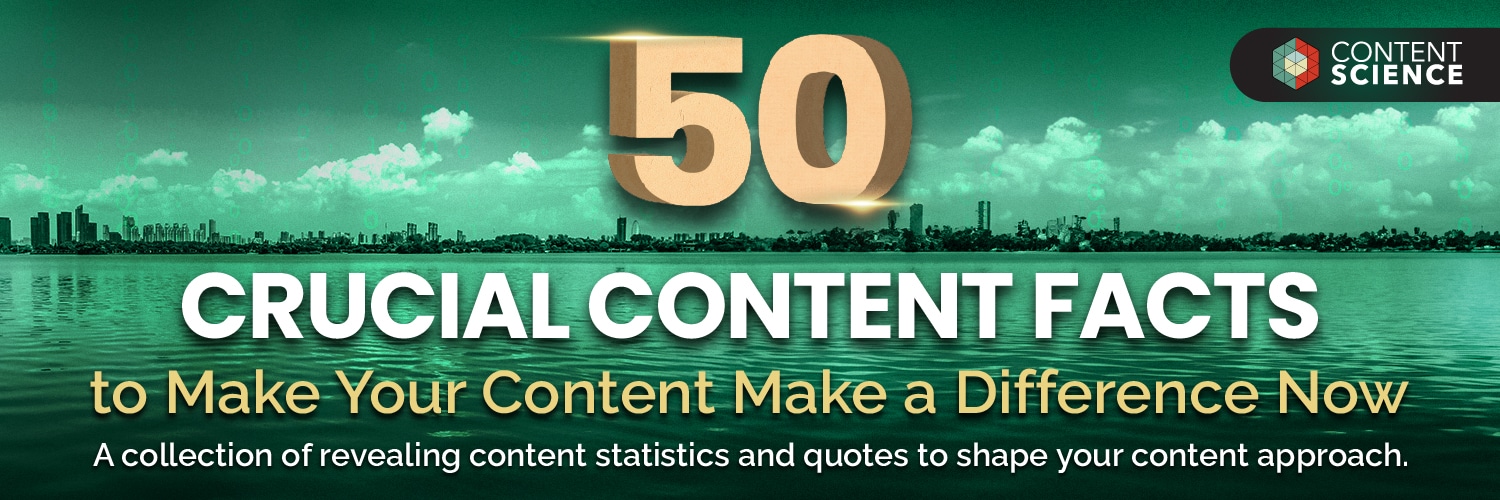
With the proliferation of AI, seismic disruption caused by misinformation, and a tension-filled election year, nobody can predict what will happen in 2024 (although we do have expert predictions.) To equip our audiences with the knowledge and tools to succeed, we’ve conducted thorough research and gathered an extensive list of salient facts on changes in the world of content.
Featuring our own research as well as facts from top organizations such as Pew Research, we update our 50 Crucial Content Facts every year to prepare organizations to achieve their greatest potential and stay competitive.
We’ve broken these facts into five categories:
- Content Consumption
- Content Operations
- Content Intelligence + Effectiveness
- Content Channels
- Content Automation + AI + Personalization
Here is a summary analysis of the facts from this year’s updated list.
Content Facts
Content Consumption
Eight in ten Americans go online every day, with 28% reporting they are online almost constantly. This increase in time spent online goes hand in hand with the increase in mobile content consumption, with smartphones accounting for the majority of online video consumption and 54% of all web traffic.
Mis and disinformation continue to spread like a virus online. In one survey, 76% of global participants reported they worry about fake news being used as a weapon. This problem ties into issues with audiences identifying content written by AI, with only 54% of consumers reporting that they can identify when an AI writes a piece of text online.
Social media continues to grow its advantage over traditional methods of advertising and marketing. 4.95 billion people have at least one social media account, and social media is now the most used way for millennials to receive their news.
However, traditional methods of digital communication remain valuable for content creators. The Radicati Group forecasts the number of business and consumer emails sent and received per day to reach 376 billion by the end of 2025.
Content Operations
Artificial intelligence and new marketing technologies are changing the way organizations approach their content operations. This is especially true for content production, with the number of companies using AI for this purpose growing 66% since 2021.
Despite the benefits of AI, many organizations struggle to achieve their goals because of a lack of content operations maturity. In its most recent Content Operations Study, Content Science found that far fewer organizations were operating at levels 4 and 5 (Sustaining and Thriving).
So, how can organizations improve their content operations? One way to start is to establish a content vision.
Content vision continues to prove its efficacy, with 100% of extremely successful content operations reporting a clear content vision. As Ben Quigley of The Home Depot notes,
Content is critical to an impactful B2B experience. So, a simple content vision can help all of the teams involved in creating, delivering, promoting and / or governing content stay aligned during the complexity of execution.
Content Intelligence + Effectiveness
Mature, competitive content operations measure the effectiveness of their content. 78% of mature content operations (levels 4 and 5) regularly evaluate content impact and success using multiple types of data. Only 29% of content operations at level 3 or lower evaluate their content.
Mature content operations also use 30% more data in their content evaluations than content operations with lower maturity levels. Mature content operations understand that distributing data to relevant team members helps an organization better evaluate and understand the impact of its content.
Additionally, the majority of mature, efficient content operations employ some degree of content governance, whether that’s a center of excellence, governance committee, or council meetings.
Instead of assuming a content strategy is static, a modern view is content strategy will evolve. Deciding when to change the content strategy and how requires reliable content intelligence. – Colleen Jones, Founder of Content Science
Content Channels
The global conversion rate – people who visit websites to convert – has remained steady since 2003. However, the way people come to visit a website changes every year. More consumers are making their online purchases through mobile devices, especially consumers between the ages of 18 and 34.
Content channels may be experiencing extreme disruption, but not all is lost. Both new and established methods of reaching audiences continue to yield real returns for content creators. The rise of social media content consumption for younger generations means an increased return for influencer marketing, with 61% of consumers reporting they trust the recommendation of a trusted influencer. Email remains a steady converter with companies making an average of 36 dollars per dollar they spend on email marketing.
When it comes to publishing content across channels, more tools are available than ever, ranging from AI tools to headless content management systems.
Content Automation + AI + Personalization
The removal of third-party cookies marks the end of an era for marketing, but organizations are still pursuing personalization. And 68% of marketers have a fully defined strategy to shift towards first-party data and half of organizations are trying to offer personalized experiences.
Artificial intelligence is once again showing its potential, this time for creating personalized experiences and content. 92% of businesses are using AI to offer personalized experiences. In our most recent Content Operations Study, Content Science found 29% of organizations are using AI in some capacity directly related to content, up 22% from our 2021 study.
But as Colleen Jones says, “These tools take you to 80% complete, leaving you with about 20% to do.”
In our Ultimate Guide to End-to-End Content, we predict
Without an end-to-end content approach, you will find it’s increasingly difficult, if not impossible, to deliver personalized, on-brand content experiences that meet or exceed performance expectations.
Visit 50 Crucial Content Facts to get all 50 content statistics, facts, and quotes—and be sure to subscribe to Content Science Review for access to more fact sheets, best practice ebooks, research, trend reports, toolkits, templates, and case studies.
Events, Resources, + More
5 Secrets of Content Ops Success: Webinar
Learn how the most successful organizations scale and mature content operations. Based on our research with 700+ content leaders and professionals.
The Ultimate Guide to End-to-End Content
Discover why + how an end-to-end approach is critical in the age of AI with this comprehensive white paper.
The Content Advantage Book
Learn more about the much-anticipated third edition of the highly rated book by Colleen Jones. Preorder the electronic version.
Course: Prompting Text Generative AI
Learn how to bring out the full potential of text generative AI to create impactful content from this on-demand course.
20 Signs of a Content Problem in a High-Stakes Initiative
Use this white paper to diagnose the problem so you can achieve the right solution faster.
Upskill with Content Science Academy
Training for modern content roles through on-demand certifications + courses or live workshops.


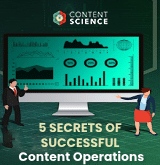
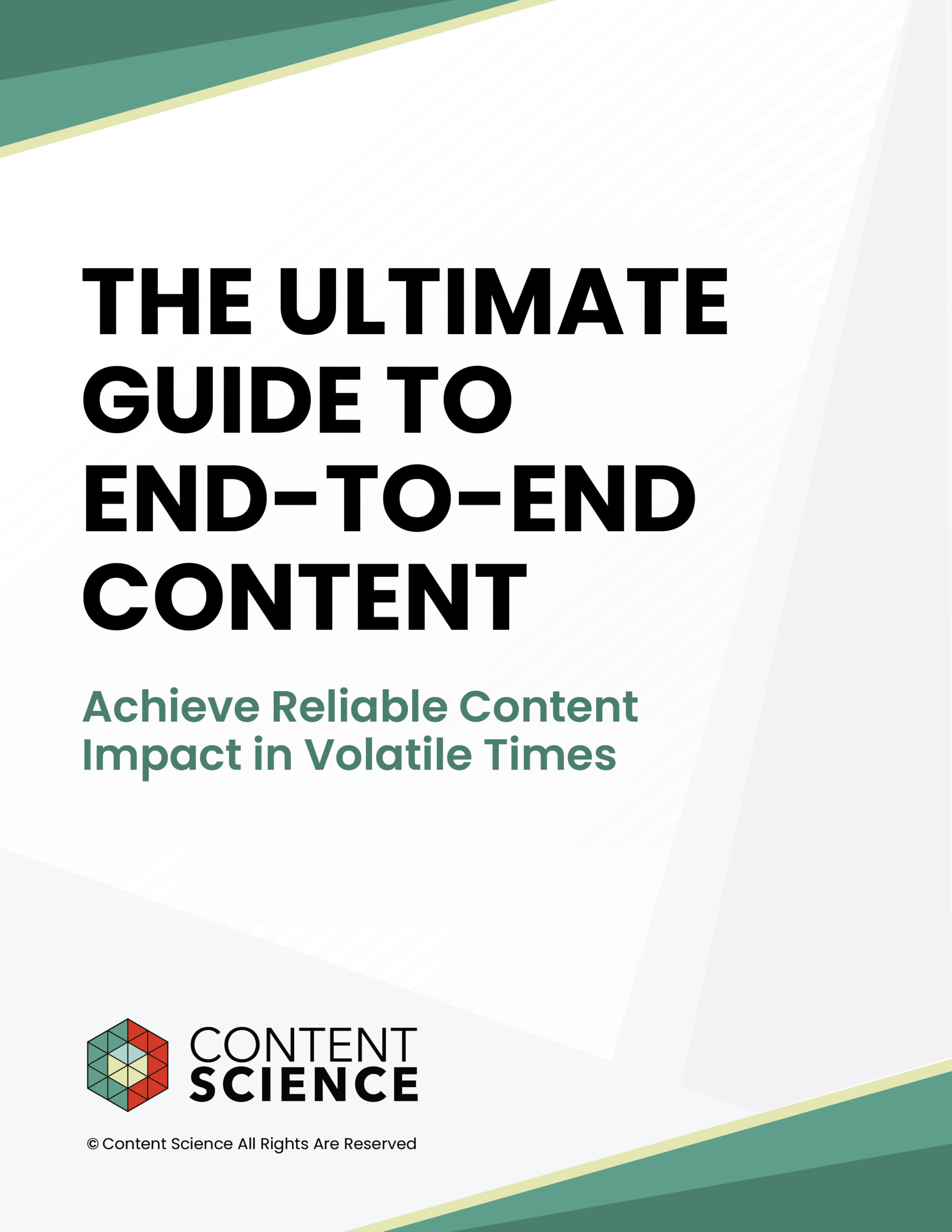
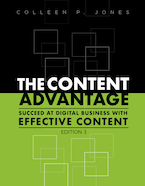
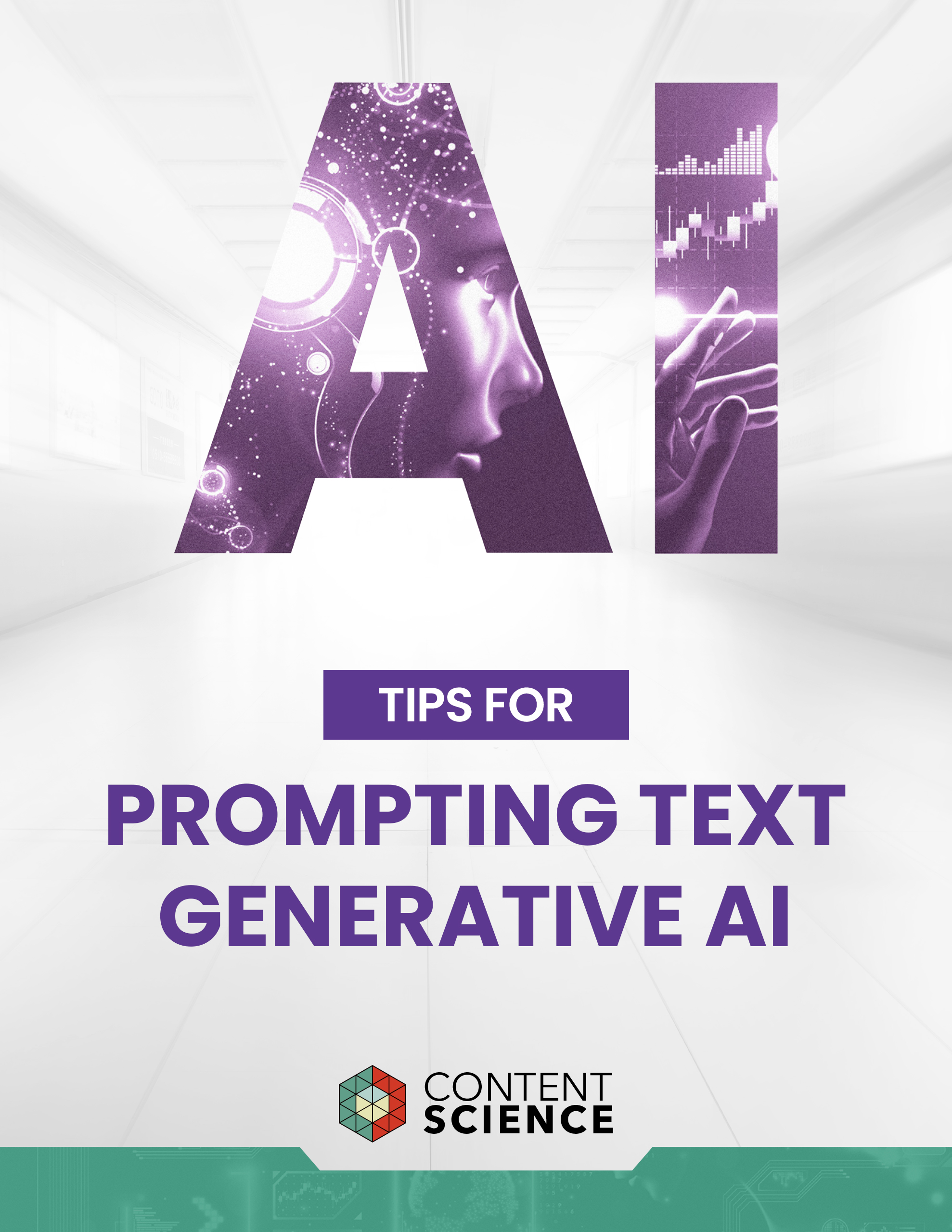
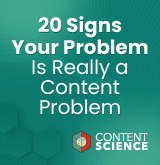

Comments
We invite you to share your perspective in a constructive way. To comment, please sign in or register. Our moderating team will review all comments and may edit them for clarity. Our team also may delete comments that are off-topic or disrespectful. All postings become the property of
Content Science Review.